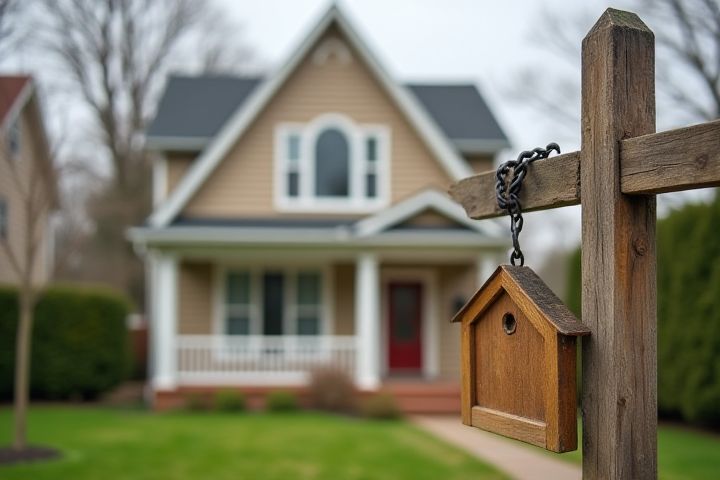
House ownership is typically verified through a title search, which is conducted by a title company or a real estate attorney. This process involves examining public records to ensure that the seller has a legal right to sell the property and to confirm that there are no outstanding liens or claims against it. Your local county or city assessor's office may also play a role in providing relevant property records. When purchasing a home, obtaining a title insurance policy can protect against any future disputes regarding ownership. It is essential for buyers to ensure that these verifications are completed before finalizing a real estate transaction.
Who Verifies House Ownership
Title company
A title company plays a crucial role in verifying house ownership by conducting a thorough title search to uncover any liens, encumbrances, or disputes related to the property. This process typically involves examining public records, legal documents, and historical data to ensure the title is clear and marketable. Once the title search is complete, the title company issues a title insurance policy, protecting you against potential legal claims that could arise after the purchase. This service usually costs between 0.5% to 1% of the home's sale price, providing peace of mind and security for your investment.
County recorder's office
The County Recorder's Office plays a crucial role in verifying house ownership by maintaining public records of property transactions. This office documents various legal documents, including deeds, mortgages, and liens, ensuring that ownership information is accurate and accessible. You can typically find records dating back several decades, allowing potential buyers and sellers to confirm ownership history often required during real estate transactions. Many County Recorder's Offices also offer online access to property records, streamlining the verification process for your convenience.
Real estate attorney
A real estate attorney plays a crucial role in verifying house ownership by conducting thorough title searches to confirm the legal ownership of the property. This process involves examining public records, deeds, and any encumbrances or liens that may affect the title. Moreover, real estate attorneys ensure that the property complies with local zoning laws and regulations, safeguarding your investment. Their expertise is essential in preparing and reviewing documents necessary for the closing process, securing a clear title before transferring ownership.
Public records
House ownership verification primarily relies on public records maintained by local government offices, such as county clerk offices or property assessment departments. These records include property deeds, tax records, and mortgage information, which provide a legal history of ownership. You can access this data online or in person, ensuring transparency and accuracy in confirming ownership. Title companies also frequently reference these public records to perform thorough verification during real estate transactions.
Title insurance company
A title insurance company plays a crucial role in verifying house ownership by conducting a thorough examination of public records, including property deeds, tax histories, and legal documents associated with the property. They identify any liens, claims, or encumbrances that may affect your ownership rights, ensuring that you are protected from potential disputes. Typically, this process includes a title search, which can take several weeks and often costs between $300 and $1,500, depending on the property's value and location. Once verified, the title insurance policy provides financial protection, allowing you to confidently proceed with the purchase.
Real estate agent
Real estate agents play a crucial role in verifying house ownership by conducting property title searches and reviewing public records. They access local government databases to confirm the seller's legal title and identify any liens or claims against the property. By facilitating communication between buyers and sellers, you can ensure that all necessary documentation, such as deeds and title insurance, is examined for accuracy. This thorough verification process helps prevent disputes and supports a smooth transaction in the real estate process.
Property tax records
House ownership verification primarily relies on property tax records, which are maintained by local tax assessors or county offices. These records provide essential details such as the owner's name, the property's legal description, and its assessed value, often updated annually. In many jurisdictions, you can access these public records online or in-person, ensuring transparency in property ownership. For your own peace of mind, reviewing these documents can confirm legal ownership and any potential liens or tax obligations associated with the property.
Homeowner's association
Homeowners' associations (HOAs) play a crucial role in verifying house ownership within their jurisdictions, serving as governing bodies that manage community regulations and standards. They maintain detailed records of property ownership, ensuring that only eligible homeowners can participate in association activities and decision-making processes. In many cases, HOAs require proof of ownership, such as the title deed or tax documents, to validate residency and enforce community rules. You can often consult your local HOA for specific procedures regarding ownership verification and associated responsibilities.
Online property databases
Online property databases, such as Zillow and Realtor.com, serve as essential tools for verifying house ownership. These platforms aggregate public records, which include deed information and tax assessments, providing transparency and accessibility to property details. In 2023, approximately 60% of homebuyers utilized online databases during their house hunting process for verification. By accessing these resources, you can ensure that the property's ownership history is accurate and up-to-date.
Mortgage lender
Mortgage lenders verify house ownership primarily through a title search and examination process. This involves reviewing public records to ensure that the property's title is clear, confirming that there are no outstanding liens or claims against the property. Lenders often require a title insurance policy to protect against any future disputes regarding ownership. By performing these checks, mortgage lenders safeguard their investment and ensure that borrowers have the legitimate right to offer the property as collateral.
